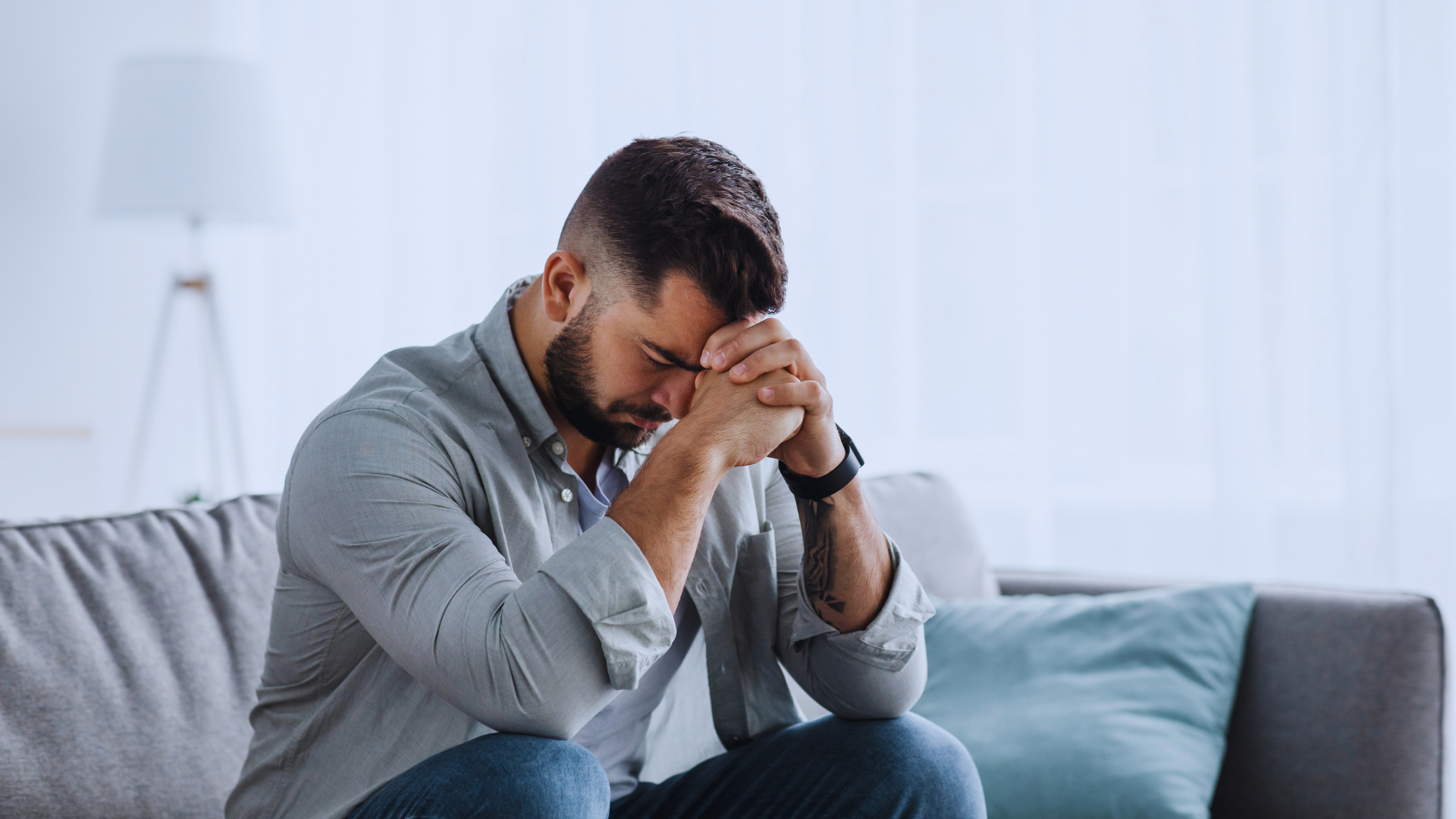Stress and anxiety can significantly impact a person’s mental health, leading to various symptoms such as restlessness, fatigue, and difficulty concentrating. To effectively handle stress and anxiety, individuals should focus on identifying the root causes of their stress and implementing practical coping strategies. Recognizing triggers can empower them to take proactive steps in managing their mental well-being.
Many factors contribute to stress, including work pressures, personal relationships, and major life changes. These elements often intertwine, creating a cycle that reinforces anxiety. By understanding these causes, individuals can better equip themselves to tackle the challenges they face, ultimately fostering resilience in their daily lives.
Integrating relaxation techniques, physical activity, and positive social interactions into a routine can offer substantial relief from stress. These practices not only alleviate symptoms but also promote a healthier mindset, making it easier to navigate life’s pressures.
Understanding Stress and Anxiety
Stress and anxiety, while often experienced together, have distinct characteristics. This section focuses on identifying triggers and symptoms of stress and anxiety, alongside differentiating between stress and anxiety disorders.
Identifying Triggers and Symptoms
Stress triggers can vary widely among individuals. Common factors include work pressure, relationship issues, financial concerns, and significant life changes. Identifying personal triggers is crucial for effective management.
Symptoms of stress may manifest physically and emotionally. They can include headaches, muscle tension, irritability, and difficulty concentrating. Chronic stress can lead to more severe issues, such as cardiovascular problems or weakened immune response. Recognizing these symptoms helps in timely intervention.
Anxiety symptoms can often overlap with stress but may present more persistently. They include excessive worrying, restlessness, rapid heartbeat, and avoidance of certain situations. Not all cases of anxiety indicate a disorder, but understanding symptoms can guide individuals to seek appropriate help.
Distinction Between Stress and Anxiety Disorders
Stress is generally a response to an external event. It tends to dissipate once the situation resolves. In contrast, anxiety disorders involve prolonged feelings of apprehension or fear that can interfere with daily life. Common anxiety disorders include Generalised Anxiety Disorder (GAD), Panic Disorder, and Social Anxiety Disorder. They may lead to debilitating effects that require professional intervention. Identifying whether stress is situational or indicative of an anxiety disorder is essential for determining the right approach to treatment. Understanding these distinctions enables individuals to reflect on their experiences accurately. Early recognition can foster effective management strategies, promoting overall well-being.
Practical Strategies for Stress Management
Effective stress management involves practical techniques that can significantly reduce stress levels and improve overall well-being. Focused approaches include physical activity, mindfulness practices, and effective time management.
Exercise and Physical Health
Regular exercise is a proven method to alleviate stress and improve mental health. It releases endorphins, which are natural mood lifters. Aim for at least 30 minutes of moderate exercise most days, which can include walking, cycling, or swimming.
Incorporating physical activities into daily routines can also provide a sense of achievement. For example, setting small, realistic fitness goals can build confidence. Stretching or yoga can enhance flexibility and reduce physical tension, further aiding relaxation.
Eating a balanced diet supports physical health and can impact mental well-being. Nutrients like omega-3 fatty acids, found in fish and walnuts, are linked to lower stress levels. Staying hydrated also plays a crucial role in maintaining focus and energy.
Mindfulness and Meditation
Mindfulness and meditation techniques have become essential coping strategies for managing anxiety. These practices involve focusing on the present moment, allowing individuals to distance themselves from overwhelming thoughts.
Meditation can take various forms, including guided sessions, deep-breathing exercises, or simply sitting in silence. Consistent practice for even 10 minutes daily can lead to increased resilience against stress. Mindfulness can be incorporated into everyday activities. This might include mindful eating, where individuals focus solely on the taste and texture of food, or mindful walking, paying attention to each step. Such practices help cultivate a sense of calm and presence.
Time Management and Procrastination
Effective time management is vital for stress reduction. Creating a detailed schedule can help individuals prioritize tasks and set realistic deadlines. A simple tool like a daily planner can aid in visualizing responsibilities and minimizing feelings of being overwhelmed.
Breaking tasks into smaller steps can also combat procrastination. Completing small sections of a larger project can provide a sense of progress and achievement. Setting aside specific time for “me time” is equally important. This dedicated time can involve hobbies, relaxation, or socializing, all of which contribute to a balanced lifestyle. Employing these techniques allows individuals to gain control over their time and reduce anxiety levels.
Lifestyle Changes for Resilience and Wellbeing
Making specific lifestyle changes can significantly improve resilience and mental well-being. Prioritizing sleep, embracing self-care, adopting healthy habits, and fostering social support networks are essential components for managing stress and anxiety effectively.
Importance of Sleep and Self-Care
Sleep plays a vital role in emotional regulation and cognitive function. Insufficient sleep can exacerbate feelings of stress and anxiety. Establishing a consistent sleep routine, aiming for 7-9 hours a night, optimizes mental clarity and emotional resilience.
Incorporating self-care practices helps alleviate anxiety. This can include simple activities like reading, taking warm baths, or practicing yoga. Self-care tips such as setting aside time for hobbies and ensuring regular breaks during the day can enhance overall well-being. Taking time to recharge is essential for managing daily stressors effectively.
Adopting Healthy Habits
Healthy habits contribute directly to resilience. Eating a balanced diet rich in fruits, vegetables, whole grains, and lean proteins supports both physical and mental health. Regular physical activity, even in small amounts, boosts mood through the release of endorphins.
Integrating mindfulness or meditation into daily routines can also promote positive thinking. Techniques such as deep breathing exercises and guided visualizations help ground individuals in the present moment, reducing anxiety levels. Establishing a consistent exercise routine and nutritious eating patterns leads to improved energy, focus, and emotional stability.
Social Support and Networking
A strong support network is crucial for resilience. Connections with family, friends, and colleagues provide an essential outlet for sharing feelings and experiences. Engaging in community activities or support groups can enhance feelings of belonging and reduce isolation.
Building social skills and maintaining regular contact with supportive individuals fosters emotional strength. Participating in group activities, whether through sports, arts, or volunteer work, can strengthen these connections. These relationships provide both encouragement and perspective, vital for navigating stressful situations effectively.
Professional Approaches to Treating Stress and Anxiety
Various professional strategies exist for treating stress and anxiety. These include established psychotherapies such as Cognitive Behavioural Therapy (CBT) and a combination of both conventional and alternative therapies, which can enhance overall well-being.
Psychotherapies and Cognitive Behavioural Therapy
Psychotherapy offers structured support for individuals managing stress and anxiety. CBT is particularly effective, focusing on identifying and altering negative thought patterns. By addressing these cognitive distortions, individuals learn to respond differently to stressors.
CBT sessions typically involve setting specific goals and engaging in practical exercises. Therapists encourage clients to challenge irrational beliefs and replace them with balanced thoughts. Techniques like journaling may be employed to track emotions and responses.
This form of therapy is generally time-limited, often lasting around 12 to 20 sessions, making it a manageable option for many. The structured nature of CBT provides individuals with tools for ongoing stress management.
Integrating Conventional and Alternative Therapies
Integrating conventional therapeutic approaches with alternative methods can offer comprehensive stress relief. Aromatherapy, for instance, uses essential oils to evoke relaxation and improve mood. This can complement traditional therapies like CBT.
Self-help techniques such as mindfulness and meditation are also effective. Patients may receive guidance on incorporating these practices into daily routines. These methods can promote a sense of balance and calm.
Practicing stress management skills alongside professional therapy can help prevent burnout. Regular check-ins with a therapist enhance accountability and support the exploration of techniques that work best for the individual. The combination offers a rich toolkit for managing anxiety effectively.




